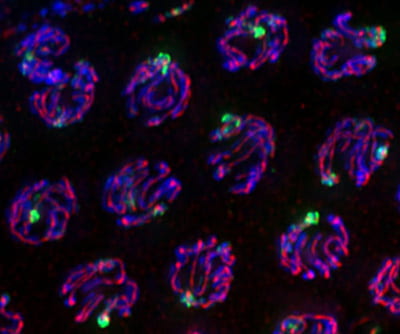Cell biologist Needhi Bhalla investigates the intricate choreography of cell division and the chromosomal surveillance apparatus that guards against disaster
UCSC.edu | October 04, 2018 | Tim Stephens
One of the worst things that can happen to a cell is to end up with the wrong number of chromosomes. This can happen if something goes wrong during cell division, and it can lead to infertility, miscarriages, birth defects, or cancer. An estimated 30 percent of miscarriages are due to an incorrect number of chromosomes in the cells of the embryo.
Cell biologist Needhi Bhalla studies how chromosomes monitor themselves throughout the complex choreography of cell division to prevent such errors. Her research focuses on a special type of cell division, called meiosis, which produces eggs in females and sperm in males. This process is radically different from the cell division by which ordinary cells multiply (called mitosis).
“It’s important to know how these basic biological mechanisms work so we can understand what happens when they go awry,” said Bhalla, an associate professor of molecular, cell and developmental biology at UC Santa Cruz. “We know that having an incorrect number of chromosomes causes genetic disorders and birth defects. Understanding how that happens can help us prevent it or identify diagnostic markers so people will be in a better position to make decisions about reproductive health.”
[ Read more. ]

